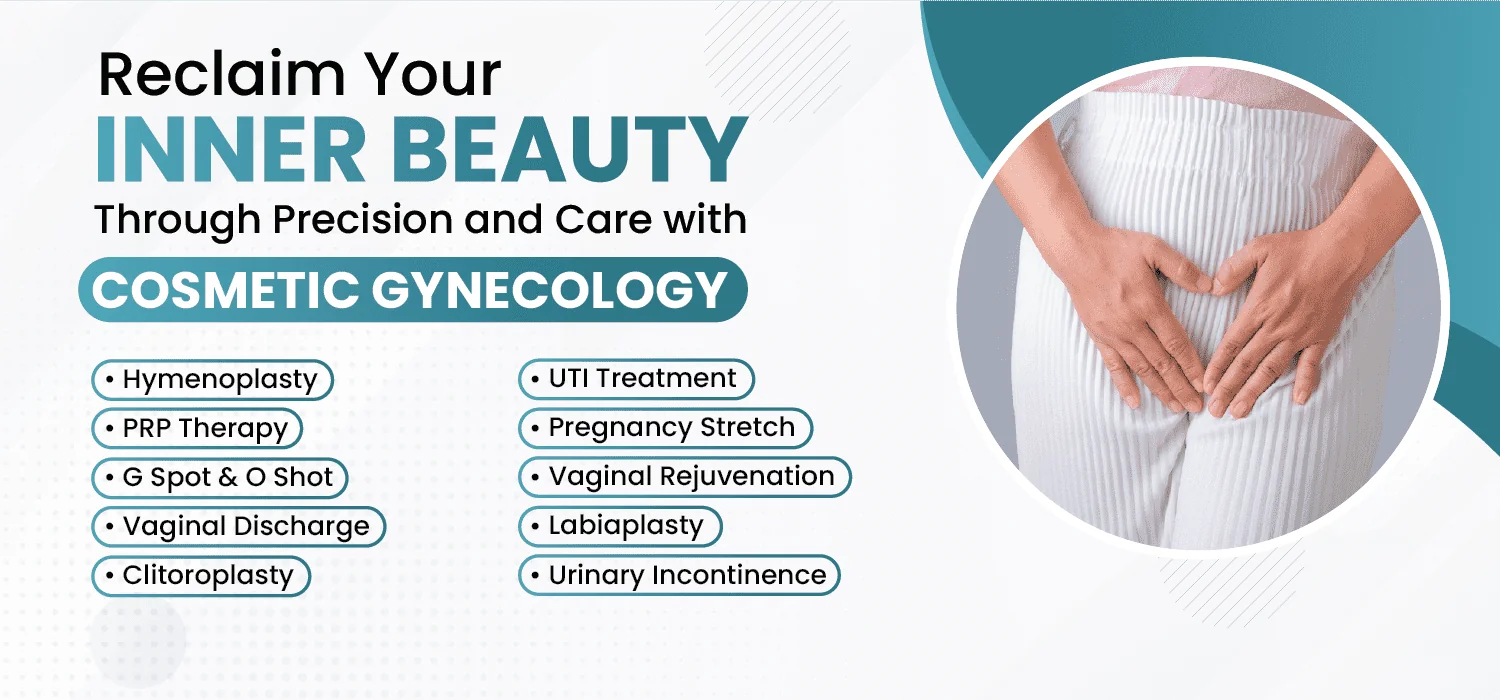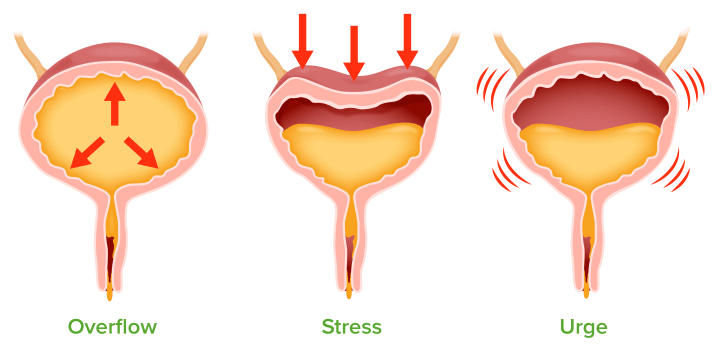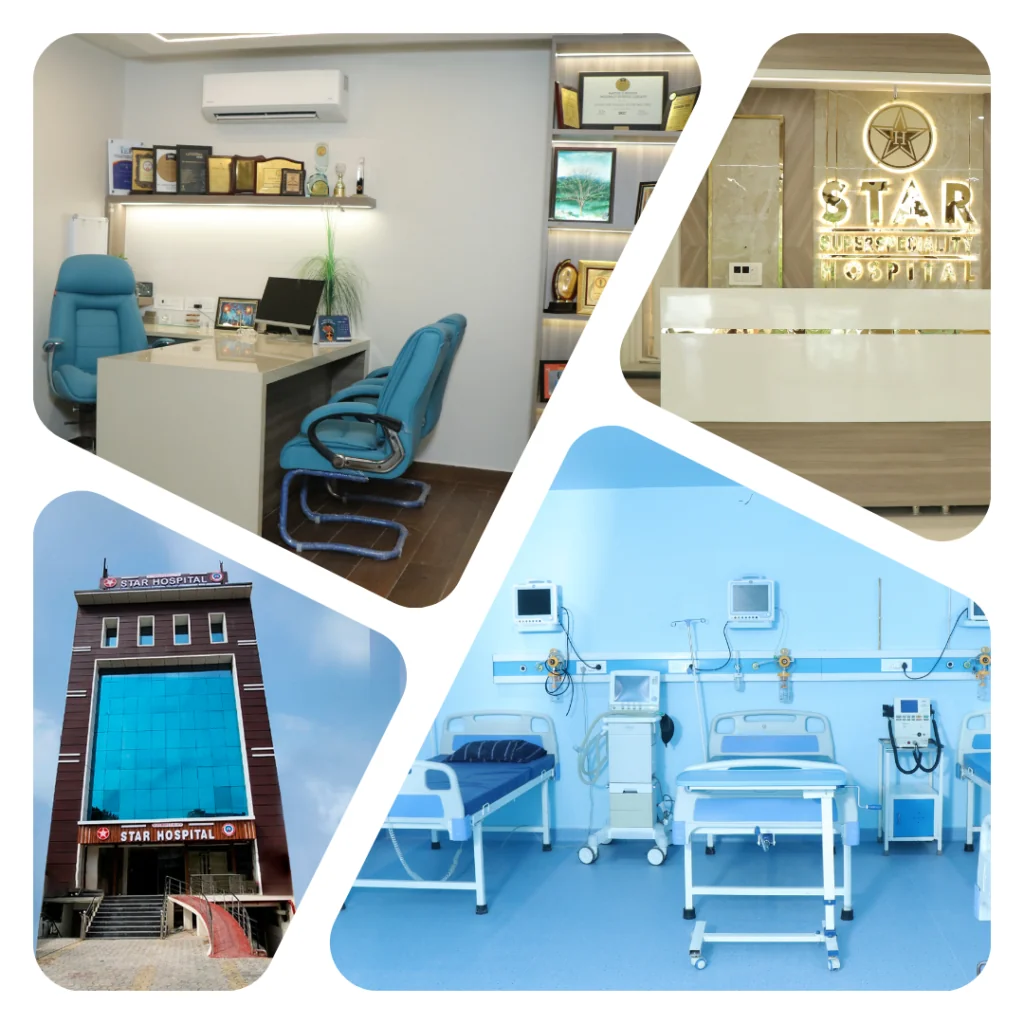All Insurance Covered
( Cashless / Reimbursement )



















Suffering from Urinary Incontinence? Then Star Hospital is the right place for the treatment of Urinary Incontinence In Jalandhar, Punjab. Urinary incontinence, in simple language, is the inability to control one’s bladder and is prevalent among elderly individuals of both genders. It can often be an embarrassing issue, as people may experience urine leakage in specific circumstances. This condition is commonly seen among older adults or women who have undergone childbirth or entered menopause. Other contributing factors may include urinary tract infections, pelvic disorders, and various prostate issues. As we delve into this topic, it’s essential to explore its symptoms, different types, and potential causes, as well as some related search terms that can help you gain a more comprehensive understanding of urinary incontinence.


While some individuals may encounter minor or sporadic urine leaks, the persistent sensation of urgency can be indicative of urinary incontinence. There are several types of urinary incontinence, including:
Star Hospital provide Urine Leakage treatment in Jalandhar, India, and Seeking timely medical advice is crucial for managing urinary incontinence, treatment options are available to alleviate its effects and enhance the quality of life for those affected. Contact Us for the urinary incontinence treatment in Jalandhar, Punjab.
Spotlessly clean, profoundly caring. Our hospital ensures a pristine environment for your well-being
Our hospital has advanced technology gadgets and the best equipment in every field.
Conveniently located at the heart of the city, our hospital offers easy access and exceptional care in a prime city center location

1. Stress incontinence: In this type, urine leaks when the bladder is under pressure or stress, which can occur during activities such as coughing, sneezing, laughing, exercising, or engaging in heavy physical work.
2. Urge incontinence: Characterized by sudden and compelling urges to urinate, especially at night, often followed by involuntary urine loss. It can be attributed to factors like infections, diabetes, or neurological disorders.
3. Overflow incontinence: This involves frequent or continuous urine leakage when the bladder is not fully emptied, sometimes resulting in a minor dribble of urine during regular movements.
It is necessary to know the type of urinary incontinence so that your healthcare can guide you about the treatment.
After that, your healthcare will likely suggest:
1. Bladder diary
2. Urinalysis
3. Postvoid residual measurement
4. Stress test
5. Cystoscopy
6. Urodynamic
Understanding the causes of urinary incontinence is vital for effective management. It can be due to several things, from short-term health problems to chronic medical diseases. Some common causes include:
1. Urinary Tract Infection (UTI): Urinary tract infections can irritate the bladder, leading to symptoms of incontinence.
2. Pregnancy: During pregnancy, any kind of pressure on the bladder and pelvic muscles, contributes to urinary incontinence.
3. Medications: Certain medications may have side effects that affect bladder control, resulting in incontinence.
4. Constipation: Straining during bowel movements due to constipation can weaken pelvic muscles, potentially leading to urinary incontinence.
5. Pelvic Disorders: Conditions that affect the pelvic region, such as pelvic organ prolapse, can result in bladder control issues.
6. Diabetes: High blood sugar levels can damage nerves that control the bladder, increasing the risk of incontinence.
7. Menopause: Hormonal changes during menopause can lead to a loss of bladder control in some women.
8. Enlarged Prostate: Sometimes an enlarged prostate can block the urinary tract which may lead to symptoms of incontinence.
The primary purpose of the gallbladder is to hold bile. gallbladder stores bile produced by the liver. When we consume fatty food the gallbladder contracts squeezing bile into small intensive part which helps to reduce fats
It increases repeated urine tract infections which highly affect your personal life.
EXCELLENTTrustindex verifies that the original source of the review is Google. Thank you doctor Mandeep Kaur. I had a Positive result after 2 weeks of my IUI I am so happy I was waiting for so long to concive and to see 2 lines on my pregnancy test but every time that was unsuccessful but this was my first try with IUI and that’s go successfully thank you so much. 😊😊Posted onTrustindex verifies that the original source of the review is Google. Great experience with Dr. Mandeep and staff of the hospital.Posted onTrustindex verifies that the original source of the review is Google. My experience is very goodPosted onTrustindex verifies that the original source of the review is Google. Great Staff With good facilitiesPosted onTrustindex verifies that the original source of the review is Google. Thank you so much Dr mandeep from the bottom of hearts for taking such good care. Because of your professionalism and great smiles, we felt like we were in good hands and that gave us peace of mind towards the big day.Posted onTrustindex verifies that the original source of the review is Google. I got my friend’s weight loss surgery done at Star Hospital. We were impressed by Dr Ahluwalia’s clarity of thought on weight loss and Bariatric Surgery. We visited some other hospitals before and were always confused as their versions were very different but here we got answers to all our questions in a very clear way and my friend could gather courage to finally get his Bariatric Surgery done and start living a normal life again. Procedure went smooth as was told and we were out out of hospital very next day. Now we regret delaying this for years!Posted onTrustindex verifies that the original source of the review is Google. Dr Mandeep is a very hardworking and nice doctor.my result came positive and I'm very thankful to mam and all the staff members 🙏🙏